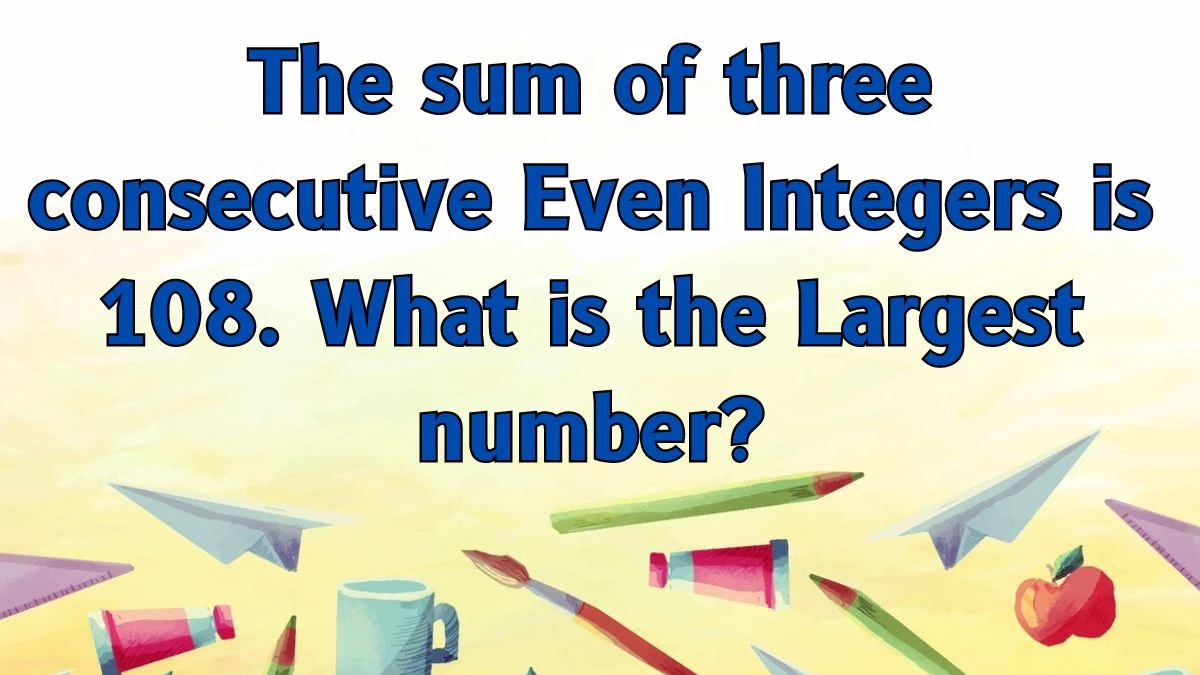The sum of three consecutive Even Integers is 108. What is the Largest number?
by
Updated Jun 25, 2024

The sum of three consecutive Even Integers is 108. What is the Largest number?
To find the largest of three consecutive even integers whose sum is 108, follow these steps
Let the three consecutive even integers be represented as 2x, 2x+2, and 2x+4.
The sum of these integers is given as 108. Therefore, we can write the equation
2x + 2x + 2 + 2x + 4 = 108
6x + 6 = 108
6x = 102
x = 17
Substitute x back into the expressions for the integers
The first integer is 2x = 2 x 17 = 34
The second integer is 2x + 2 = 34 + 2 = 36
The third integer is 2x + 4 = 34 + 4 = 38
Among the integers 34, 36, and 38, the largest number is 38
Therefore, the largest of the three consecutive even integers whose sum is 108 is 38
Consecutive Even Integers and their Sums
Consecutive even integers are numbers that follow each other in sequence, with each number being two units apart. For example, 2, 4, and 6 are consecutive even integers. This concept is used to explore patterns and relationships between numbers in a sequence.
In mathematics, consecutive even integers can be represented using algebraic expressions. If we let the first even integer be 2x, then the next consecutive even integers can be represented as 2x+2, 2x+4, and so on. This representation helps in setting up equations to solve various problems.
Sum of Consecutive Even Integers:
One common problem in mathematics is finding the sum of consecutive even integers. This involves adding the numbers together and often requires setting up an equation to find the unknowns. For instance, if the sum of three consecutive even integers is known, we can use algebra to determine the individual integers.
Understanding how to work with consecutive even integers is useful in solving word problems and mathematical puzzles. It enhances problem-solving skills by encouraging logical thinking and the use of algebraic methods to find solutions. It introduces students to concepts of sequences, series, and basic algebra. It also provides a foundation for more advanced topics such as arithmetic progressions and algebraic equations.
Although the concept of consecutive even integers might seem abstract, it has practical applications in various fields. Working with consecutive even integers helps students develop analytical skills. They learn to identify patterns, set up and solve equations, and think critically about mathematical relationships.




